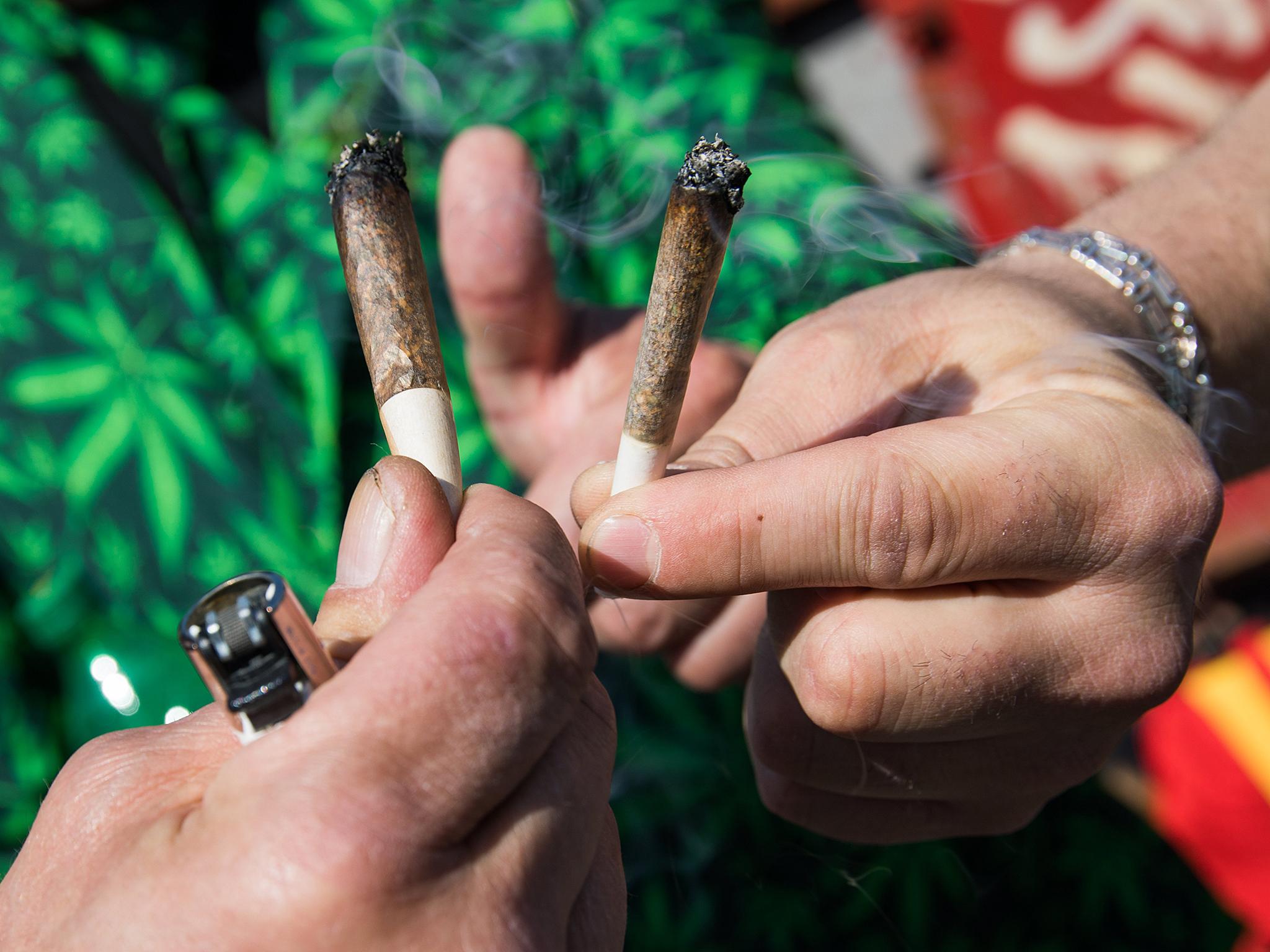Cannabis users are more successful and satisfied, finds new study
Household income was $93,800 (£73,470) for consumers in California, significantly higher than the $70,000 (£54811) average for abstainers.

Your support helps us to tell the story
From reproductive rights to climate change to Big Tech, The Independent is on the ground when the story is developing. Whether it's investigating the financials of Elon Musk's pro-Trump PAC or producing our latest documentary, 'The A Word', which shines a light on the American women fighting for reproductive rights, we know how important it is to parse out the facts from the messaging.
At such a critical moment in US history, we need reporters on the ground. Your donation allows us to keep sending journalists to speak to both sides of the story.
The Independent is trusted by Americans across the entire political spectrum. And unlike many other quality news outlets, we choose not to lock Americans out of our reporting and analysis with paywalls. We believe quality journalism should be available to everyone, paid for by those who can afford it.
Your support makes all the difference.Cannabis consumers are frequently affiliated with lazy, unsuccessful and apathetic labels. But, contrary to the popular stereotype new research suggests they are in fact among the most satisfied and successful among us.
The study, conducted by market researchers BDS Analytics, surveyed consumers and abstainers across a wide variety of mental, social and financial factors. These included life satisfaction levels, attitudes towards parenting and employment data.
The survey analysed extensive data from two US states that have voted to legalise the sale of cannabis -California and Colorado.
Debunking myths of low motivation and under-achievement, in California it was found that 20 percent of consumers had graduated with a master’s degree while the figure was 12 percent for those who wouldn’t consider trying cannabis.
In terms of household income, the figure was $93,800 (£73,470) for consumers, significantly higher than the $70,000 (£54811) average for abstainers.
Similar results were found in Colorado with 64 percent of cannabis consumers in full-time jobs, compared to 54 percent of those who would not consider consuming the drug.
The finding that consumers are more likely to be parents also refutes the familiar stereotype of cannabis users being irresponsible. In California, 64 percent of consumers had started a family, while the figure for abstainers stood at 55 percent.
In terms of life satisfaction, nearly five in ten Colorado consumers agreed that they are more satisfied with life today than they were a year ago, compared to about four in ten among those who avoid cannabis.
Healthier habits and social activity also correlated. In Colorado, 36 percent of consumers described themselves as “very social people”, whereas only 28 percent of marijuana avoiders said the same.
Consumers in both Colorado and California also said they enjoyed outdoor recreation at significantly higher rates.
Volunteering was also more common for consumers with 38 percent in California offering their time to help others. By contrast, 25 percent of rejecters in the state said they volunteered.
“Cannabis consumers are far removed from the caricatures historically used to describe them,” says Linda Gilbert, head of the consumer research division at BDS, in a press release.
With public support for cannabis legalisation at an all time high, it seems that the common idea of the under-achieving, idle cannabis consumer could be on its way out.
Join our commenting forum
Join thought-provoking conversations, follow other Independent readers and see their replies
Comments